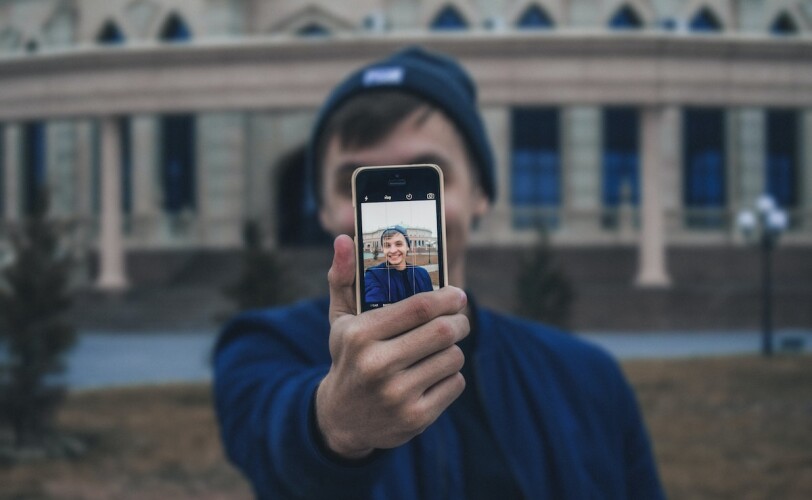University doesn't have to mean anxiety
It’s that time of year again. Our children are off to college or university, and a whole new world is opening up for them. This is both exciting and scary! Of course, both of those internal states depend on perception as to what they will feel.

Like any significant changes in life, it can cause problems with normal comfort zones disappearing and too many new things happening at once, it’s particularly bad for the socially anxious person.
This is the time of year when I see many students with anxiety, some of whom have never had anxiety before. Suddenly they are going to uni or college and that’s the catalyst that kicks off the anxiety.
If not nipped in the bud pretty quickly, it can escalate. I have seen students, highly intelligent and capable, crumble and break under the newness of it all, so much so, they defer a year or drop the course. This is so unnecessary and when you explain to them what is actually happening in their brain and how they can control their emotions and panic, they are very much relieved.
Then, as long as they do the strategies consistently, they will come through fine, and it doesn’t turn into a long-lasting anxiety habit.

Often what they don’t realise is that when the brain is triggered by something it believes to be fearful, it acts as if it is in survival mode. Indeed, it is because it goes straight into the limbic brain, which is about survival and fear. From there, they lose all rationality and perspective and believe there is something seriously wrong with them.
Also, because some of the bodily symptoms like panic attacks, hot and cold sweats, depersonalisation and intrusive thoughts that they may be feeling, they understandably think there has to be something wrong with them. How could there not be? From there all the doctor appointments start and the medication, which is often really unnecessary.
That is why I feel the need to express here, that if you or your child is going off to college or uni and are feeling anxious, let them know that they need to understand, to have the knowledge of what is happening in their brain and body, and how they not only can get through it but, with the correct strategies, stop it.
Common signs of anxiety
- if you are increasingly ruminating on the 'what if'
- if you are avoiding people/situations
- you think there is something wrong with you despite seeing a doctor
- bodily symptoms are worrying you and you aren’t sleeping well
- you are keeping all of this to yourself
- you feel out of control
- generally, you feel you can’t cope and possibly feel ashamed
One of the quickest ways to get into a better state and to be able to think rationally is through physiology and hypnosis. As soon as the subconscious knows that it is OK, we are safe; the body acts accordingly. This can be ‘installed’ with hypnosis; the stress begins to come down and we regain perspective.

Hypnotherapy for anxiety
It helps to think of it as the body going into over-drive, like the foot on the accelerator of a car and when we slow things down again and get equilibrium back, that’s the parasympathetic nervous system kicking in with the breaks. Also, we all know that proper breathing can really help bring down the parasympathetic nervous system. Once you have breathed yourself into calmness, you can see things so much more clearly. There are plenty of apps freely available to help with this, such as Headspace and Calm.
Like all anxiety sufferers, the strategies are super important and one of the main ones is to teach them how to think better than they feel. This is so important as, without some rational thinking in place, the brain and body will always revert back to the default of anxiety.
It needs to be rehearsed as in hypnosis. So you could, for example, do the following technique when you feel panicked or stressed:
- Stop, understand what’s happening and you are OK.
- Say to yourself, “It’s just a bit of faulty wiring, misfiring, that’s all, it will pass”.
- Think of what you can do to distract yourself, or better still, to become absorbed in something, for example; singing really loud can help, so can doing something physical, jumping jacks, press-ups, anything. If you are in public, just ring someone or recite a poem to yourself, say the alphabet backwards, get creative here.

Every day, rehearse the above by seeing it and say it out loud, several times a day. The mind doesn’t know the difference between a real and an imagined event. All successful people do this.
In this way, by repetition, you are helping it go into the subconscious. So next time you are feeling anxious, your mind and body have the new rehearsed behaviour and can begin to use it. It won’t happen overnight, but the more you rehearse, the more you will find it easier to do because you are ‘conditioning’ this behaviour. The crucial point here is just to do something rather than ruminate on it. Rumination is fuel for anxiety. What you focus on grows!
If you would like help with this, or if you have a child who is suffering from stress or anxiety, contact a hypnotherapist for an initial consultation.

Find a hypnotherapist dealing with Anxiety
All therapists are verified professionals






